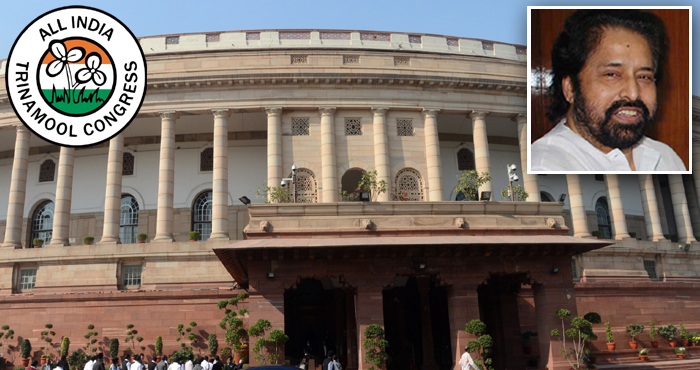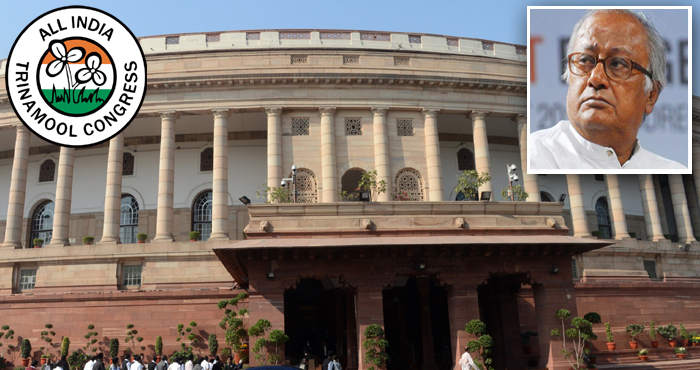FULL TRANSCRIPT
Hon Deputy Speaker Sir, the discussion is not on General Budget; it is limited within the supplementary proposals and so the scope of discussion on this Budget is not enough. But there are some key issues which I feel must be discussed and I expect a response from Hon Jaitley ji also.
In the Supplementary Demands for Grants, Government is asking for an additional financial support of Rs 11,166 crore for 2017-18. Along with that they are also asking for Demands for Excess Grants for the year 2014-2015. Both the issues have been taken up together. Out of this Rs 11,166 crore, the Hon Minister has categorically clarified which areas he is going to utilise this amount for expenditure.
Rs 7,000 crore would go to the Petroleum and Natural Gas Ministry, for providing additional Grants in Aid (general) for payment of differential royalty to the State Governments, for GST. Rs 386 crore would be spent for activities related to the Goods and Services Taxes, GST; Around Rs 250 crore would be used for publicity of GST and Rs 99.3 crore for digitisation for payment of advanced user charges of GST Network. Again an amount of Rs 37.09 crore would be spent for accounting of GST. So, it is easily understandable because GST has been newly introduced, the Government is asking GST-oriented supplementary demand.
I want to say a few things about these points. Two major issues had been announced by the Government – demonetisation and GST. In the last Winter Session, Sir, I proactively took part in debates and discussions on demonetisation in the Parliament; everyday we raised this issue. We being a regional political party we had our separate views, we never opposed the idea of demonetisation or even GST.
Demonetisation was an issue we extended our full support to but with some riders. We advocated a go-slow approach. We advised the Government not to ban both Rs 1000 and Rs 500 notes together but go about it slowly.
Parliament session was held from November 16, 2016, to December 16, 2016, and after that I could not take part in the General Budget discussion because in the meantime I was arrested in the first week of January and sent away to jail custody. For long time I was in jail and was looking for an opportunity to speak on Arun Jaitley Ji’s Budget. I take this opportunity to speak on the Supplementary Demand for Grants to ask the Government what are the good effects of demonetisation.
After demonetisation was implemented, what good signals has the nation received in the economic arena? What is the effect of the dramatic pronouncement of GST in the Central Hall of Parliament at midnight? It was not responded by all political parties. It was a decision taken by the Government.
What I feel, Sir, is that demonetisation has not risen to the level of expectation which Government intended. Small and medium businesses are not happy with GST; even in the textile industry. In my Parliamentary Constituency of Kolkata Uttar, there is the Chamber of Trade and Textile Industry; they are frantically trying to pursue me to communicate to Hon FM that their matter be taken care of sympathy and the decision to impose 5 per cent GST on textile be withdrawn.
I want to put on record here that this Supplementary Demands for Grants, which the Minister is asking for, will be passed and this will be taken up as per constitutional norms. Then the Appropriation Bill will come; it will also be passed. Then the Government will start its operation.
Here, I want to dwell on the issue of cooperative federalism. Sir, after independence we have seen that the eastern region – Bengal, Bihar, Odisha, Assam – were the worst victims of regional imbalances of economy. These States have been neglected in economic development. Maharashtra grew, Gujarat grew, but not the States in the eastern region. We suffer a lot. We have become the victims of regional imbalances and we should be provided with special economic packages and funds.
In our State, in particular, one party ruled for a long time. For 34 years. And the State actually become economically bankrupt. The present Government had to carry a huge debt burden. From the very beginning our State Government made an appeal and it was once decided Bengal, Kerala and Punjab will be given special packages. But nothing has been implemented. We are repeatedly asking for that.
Bengal Government is highlighting a few of its good projects. One of these projects is the Kanyashree scheme.Two days back Maneka Ji was here. She said in the ‘Beti Bachao Beti Padhao’ scheme that the Government of India had launched, Kolkata was performing the worst. We do not accept this project because it has a budget of only Rs 100 crore the Kanyashree scheme has a budget of Rs 1000 crore; this project has been acknowledged by the United Nations. Mamata Banerjee has received an award for the Kanyashree project just two months back in Netherlands. I would like to request the Government of India to accept proposals from different State Governments for the welfare and benefit of the common people.
Sir, now I would like to speak regarding the excess grants for 2014-2015 – safety funds for the railways. I would like to request Mr Arun Jaitley that our Railway Standing Committee has submitted a very good report on the safety and security of railways; so please go through it and the excess money which was spent in 2014-2015, has already been granted. You can accept it in that way.
Sir, I hope these two issues will be taken care of – demonetisation and GST. I want to hear from the Government about the good effects of demonetisation after its implementation.
GST has been implemented. We do not oppose the idea of GST; Dr Amit Mitra was the Chairman of the Empowered Committee of Finance Ministers for GST. He has very positively put across the ideas and suggestions of Bengal Government for the guidance of the Centre. He also spoke about the agony of the States; we are the worst sufferers.
The federal structure of the country must be respected in its proper spirit. Just like Modi Ji is an elected Prime Minister – and we have accepted that – a Chief Minister of a State is also elected with the support of the people. So why should the Centre and the State always fight each other and be in a warring mood? Why should I be afraid that if I criticise the Government, I may be taken into task? These assurance have to be categorically given from the Government.
Parliament is the temple of democracy; it is the forum where different political parties must coexist with their own idea, own faith, own belief. If objective criticism is done, I think that is to be taken with faith, love and with all humility and pride. I hope that the Finance Minister will certainly look after the problems of the different States, which are suffering a lot in different ways.
There is nothing to oppose in the Supplementary Demands for Grants that the Finance Minister has placed. We extend our support.
Thank you.


